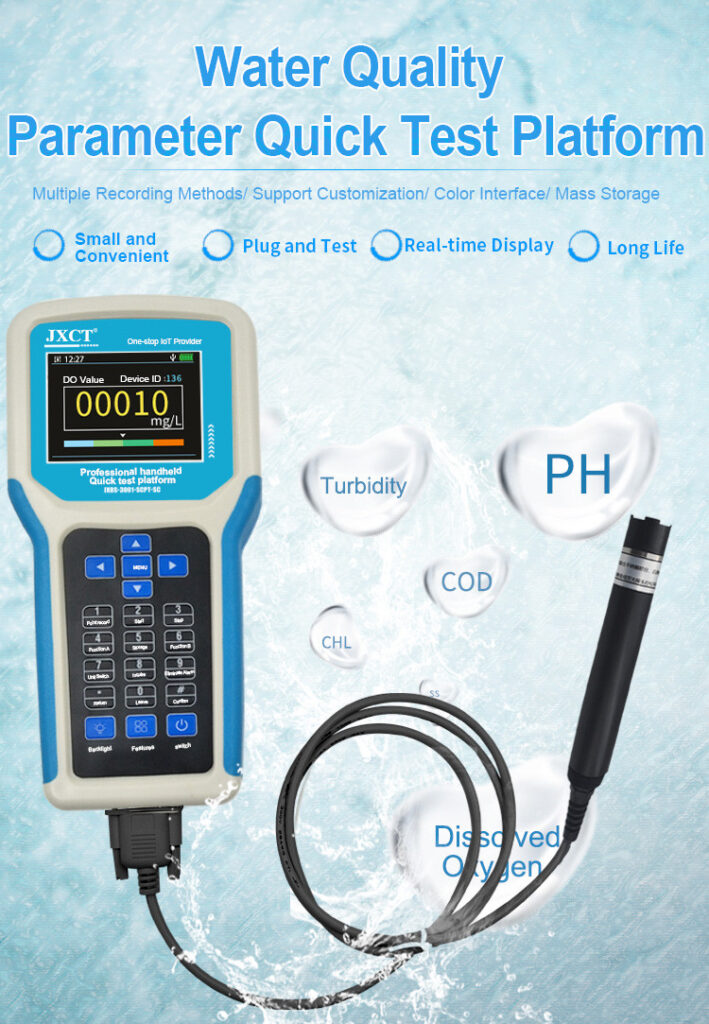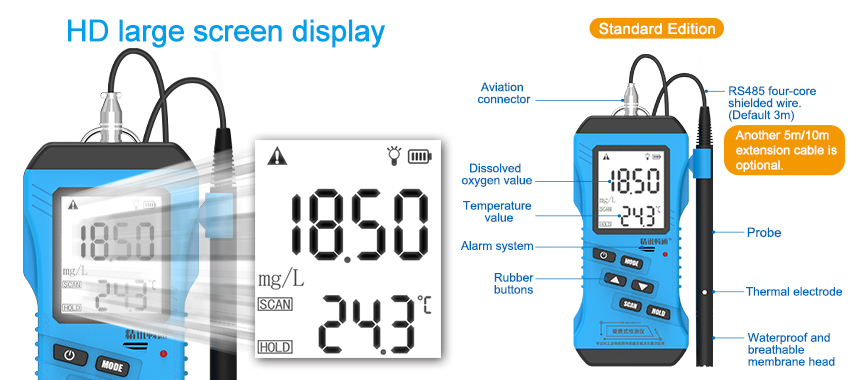What is Portable water quality detector

Portable water quality detector are handheld devices that are used to measure various parameters of water quality, such as pH level, turbidity, chlorine content, and more. These detectors are essential tools for ensuring that the water we drink, swim in, or use for agricultural purposes is safe and meets health and environmental standards. This article will explore the importance of portable water quality detectors, their working principles, types, and applications.
Portable water quality detectors work based on different sensor technologies that measure various parameters of water quality. These sensors are typically made of chemical reactants that change color in the presence of specific substances in the water, such as pH indicator, turbidity indicator, and chlorine indicator. The device displays the resulting color on a scale that corresponds to the water quality parameter being measured.
The various types of portable water quality detector
There are various types of portable water quality detector on the market, each designed to measure specific water quality parameters. Some of the most common types include:

pH meters: These devices are used to measure the acidity or alkalinity of water and are essential in industries such as wastewater treatment and swimming pool management.
Turbidity meters: These devices measure the cloudiness or haziness of water caused by suspended solids and are commonly used in water treatment plants and swimming pools.
Chlorine meters: These devices are used to measure the concentration of chlorine in water and are essential in swimming pools and water treatment facilities.
The variety of applications of portable water quality detectors
Swimming pools: Detectors can be used to measure the pH level, chlorine content, and turbidity of pool water to ensure that they are safe for swimming.

Water treatment facilities: Detectors can be used to measure the pH level, turbidity, and chlorine content of treated water to ensure that it meets health and environmental standards before being discharged into the environment.
Wastewater treatment plants: Detectors can be used to measure the pH level, turbidity, and other parameters of wastewater to ensure that it is properly treated before being released into the environment.
Agricultural applications: Detectors can be used to measure the pH level and nutrient content of irrigation water to ensure that crops are receiving the necessary nutrients and are not subject to excessive salt damage.
In conclusion, portable water quality detectors are essential tools for ensuring the safety and quality of water. By using these devices, we can ensure that our drinking water, swimming pools, and agricultural irrigation systems meet health and environmental standards. With the convenience and effectiveness offered by these devices, it is likely that they will play a crucial role in ensuring the health and sustainability of our water resources in the future.